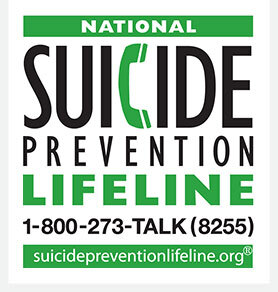Slashing Away Stigma

June 13, 2022
The current mental health crisis is a nationwide – even worldwide – problem. Some claim health care workers need to be trained, and more therapists should be urged to work, but there are things the population can do every day to help people who are struggling.
Between social media, movies, and slang society has picked up, there are a lot of negative stigmas associated with mental health. These stigmas can cause symptoms of patients with mental health to worsen or get to the point of serious harm.
To fight the negative stigmas, one must be educated on the three types of stigma in today’s society—Public, Self, and Institutional. Public stigma is a more collectively different factor of everyone in society that makes commentary and has a negative attitude toward people with mental health issues.
Self-stigma is invalidating oneself. Invalidating oneself can include feeling ashamed about their diagnosis, not seeking help because you don’t feel like you are important to get the treatment you deserve, and many other thoughts that are persistently negative.
Finally, Institutional Stigma is a stigma in rules and laws that uses language that can be demoralizing and triggering in some cases. All three of these categories bounce off each other which leads to a snowball effect of negative stigma about mental health wherever you go.
There are simple ways that everyone can do in their own time to help people who sometimes can’t get the help they need. The first step is educating yourself and others about mental illness and how you can make changes in your everyday lives. It is as simple as reading a short article like this.
Another way is to help fight self-stigma and public stigma at the same time. Being honest and open about your treatment is important and can help normalize it. People can learn to sympathize with each other which can help remove self-stigma. To also help with self-stigma you can go to the guidance office.
WHBHS social worker Ms. Gebhardt said, “A lot of people feel ashamed of going to guidance but there are many reasons to go down to guidance. You can be discreet and everything is always confidential.”
Finally, the most important thing you can do for yourself to remove the stigma and remove stigma in the public is to change your word choice! Ms. Gebhardt advised, “People all got through something, choose your words wisely.”
Some words can be very triggering for others. A sentence that might not seem like a big deal to you can push someone to be quiet about how they are struggling or can make someone feel worse about their mental health struggles, which can then worsen.
Just remember you do always have help and it is ok to reach out. Reach out to the guidance counselors at school, talk to a trusted adult, and talk to your friends.
Iff you are having thoughts of self-harm and/or suicide, call the National Suicide Hotline number to speak to a professional in your time of need. (800-273-8255).
Starting on July, 16th, 2022, there will be another hotline to call. Simply dial the number “988” and get the help you need.











